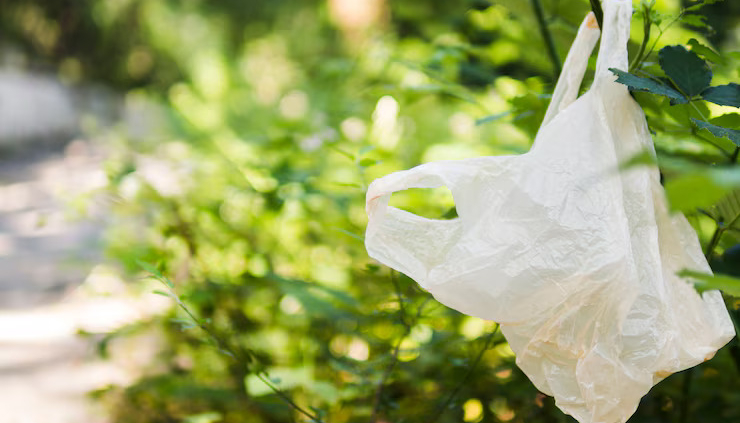How Biodegradable Grocery Bags Contribute to Sustainable Waste Management
In a world increasingly burdened by plastic pollution, the push for greener alternatives has never been stronger. From reusable straws to eco-friendly packaging, change is happening—but perhaps one of the most crucial shifts lies in everyday shopping habits. Among these, the adoption of biodegradable grocery bags plays a vital role in achieving sustainable waste management.
These bags are not just a temporary solution—they represent a foundational shift in how we think about consumption and disposal. In this blog, we explore how biodegradable grocery bags fit into the larger picture of waste reduction, environmental health, and sustainability goals.
Understanding Biodegradable Grocery Bags
Before diving into their role in sustainable systems, let’s define what biodegradable grocery bags are. Unlike conventional plastic bags that can take hundreds of years to break down, biodegradable bags are made from natural, renewable materials such as:
- Cornstarc
- Potato starch
- Cassava roots
- PLA (Polylactic Acid)
These materials decompose through natural processes—often in months—leaving behind no harmful microplastics or chemical residues. Biodegradable bags, when disposed of properly, break down into water, carbon dioxide, and biomass, making them significantly more environmentally friendly.
The Waste Problem with Traditional Plastic Bags
To fully appreciate the value of biodegradable grocery bags, it’s important to understand the damage caused by their plastic counterparts. Every year, billions of plastic grocery bags are produced globally. Most are used for a few minutes and discarded, ending up in:
- Landfills, where they take centuries to degrade
- Oceans, where they harm marine life
- Incinerators, contributing to toxic emissions
These issues not only create environmental hazards but also increase the burden on waste management systems already struggling with overcapacity and contamination.
What Is Sustainable Waste Management?
Sustainable waste management refers to the efficient collection, treatment, recycling, and disposal of waste in a manner that conserves resources, minimizes environmental impact, and supports long-term ecological balance.
This involves practices such as:
- Waste segregation
- Composting
- Recycling
- Source reduction
- Adoption of eco-friendly materials
Biodegradable grocery bags directly support several of these principles.
How Biodegradable Grocery Bags Support Sustainable Waste Management
1. Reducing Landfill Waste
Biodegradable grocery bags break down much faster than plastic. When properly disposed of in composting environments, they reduce the volume of waste that ends up in landfills. This not only conserves landfill space but also cuts down on methane gas emissions, which are a major contributor to climate change.
2. Promoting Composting Culture
Many biodegradable bags are also compostable, meaning they decompose into nutrient-rich matter under the right conditions. When used for collecting kitchen waste or garden scraps, they promote home composting—a cornerstone of sustainable waste practices.
- Composting reduces organic waste sent to landfills
- Enhances soil health and reduces chemical fertilizer use
- Helps cities manage organic waste more efficiently
3. Minimizing Microplastic Pollution
Traditional plastic bags fragment into tiny particles called microplastics, which contaminate water, soil, and food chains. Biodegradable grocery bags, by contrast, decompose fully and do not leave microplastic residue, thereby reducing long-term environmental toxicity.
4. Supporting Circular Economy Goals
In a circular economy, products are designed to re-enter the ecosystem safely or be reused. Biodegradable grocery bags fit this model by:
- Being produced from renewable resources
- Returning safely to the environment post-use
- Eliminating waste in a closed-loop system
This approach significantly aligns with national and global goals for zero-waste living and sustainable urban development.
The Role of Consumers and Retailers
Consumer Responsibility
For biodegradable grocery bags to truly contribute to sustainable waste management, proper usage and disposal are key. Consumers should:
- Use bags for collecting compostable waste
- Avoid mixing them with conventional plastics
- Dispose of them in composting or organic waste bins
Retailer and Manufacturer Commitment
Retailers can accelerate change by:
- Offering biodegradable grocery bags instead of plastic
- Educating customers on disposal methods
- Partnering with local composting facilities or NGOs
Manufacturers should also ensure their bags are certified compostable and meet recognized standards such as IS/ISO 17088 or EN 13432.
Challenges to Widespread Adoption
Despite their benefits, biodegradable grocery bags face certain challenges:
- Higher cost than regular plastic bags
- Consumer confusion between biodegradable, compostable, and oxo-degradable products
- Limited composting infrastructure in many regions
- Lack of regulatory enforcement
However, these challenges can be overcome with awareness campaigns, government support, and increasing consumer demand for sustainable alternatives.
India’s Plastic Ban and the Rise of Biodegradable Alternatives
In India, the government’s ban on single-use plastics has spurred interest in eco-friendly alternatives like biodegradable grocery bags. Businesses are being encouraged to shift toward greener packaging, while consumers are actively seeking plastic-free options.
With state-level policies supporting sustainable waste management, biodegradable bags are quickly becoming a preferred choice among retailers and municipal bodies.
Conclusion
Biodegradable grocery bags are more than just an alternative to plastic—they are a crucial component of the broader push for sustainable waste management. By reducing landfill volume, supporting composting efforts, and aligning with circular economy practices, these bags help tackle one of the world’s most pressing environmental challenges.
Their success, however, depends on collective responsibility—from manufacturers and retailers to everyday consumers. When used correctly and supported by proper waste systems, biodegradable grocery bags can indeed pave the way to a cleaner, greener, and more sustainable future.




Leave a Reply
Want to join the discussion?Feel free to contribute!